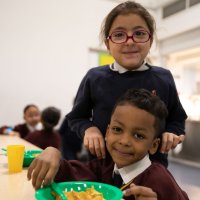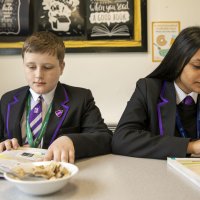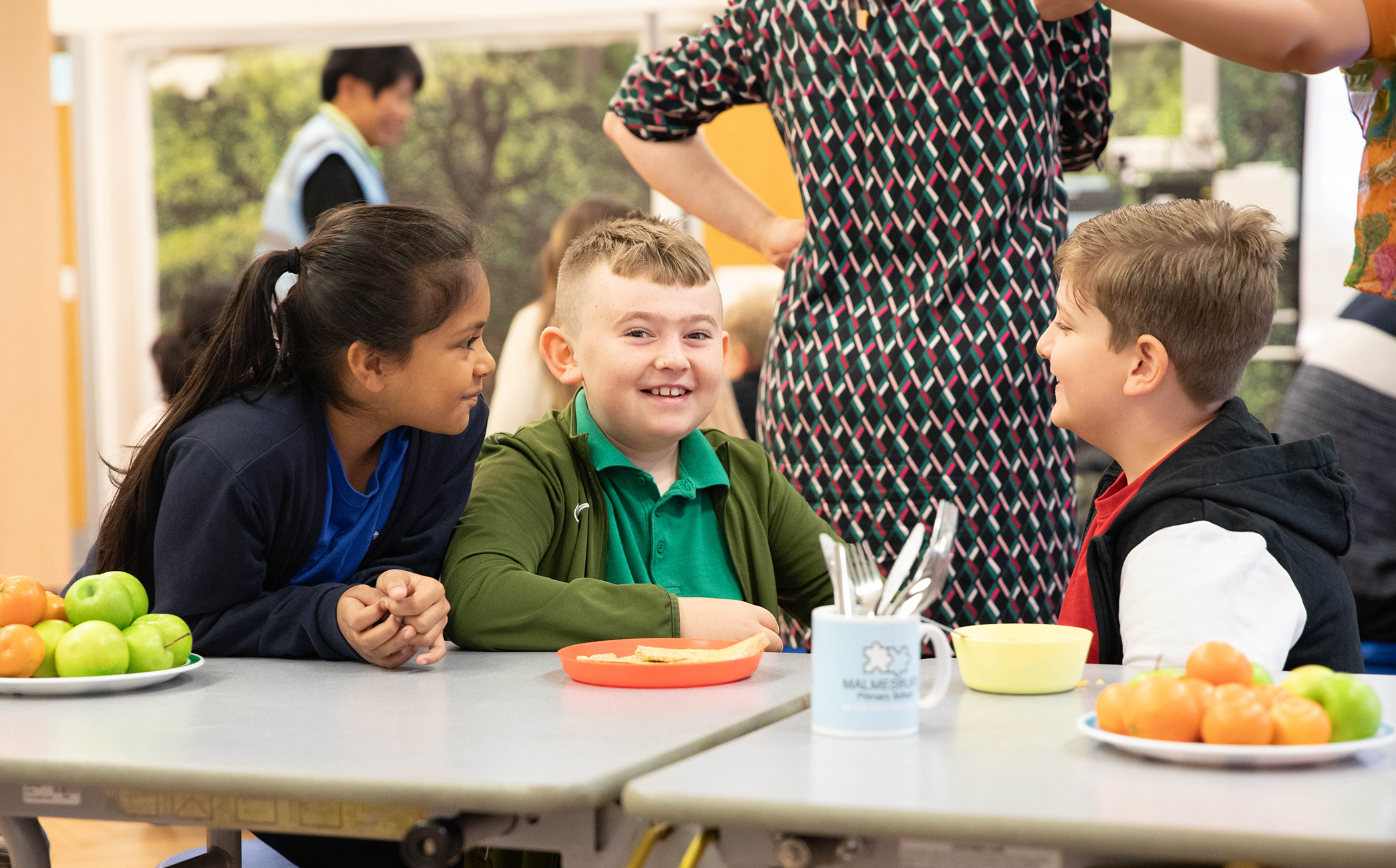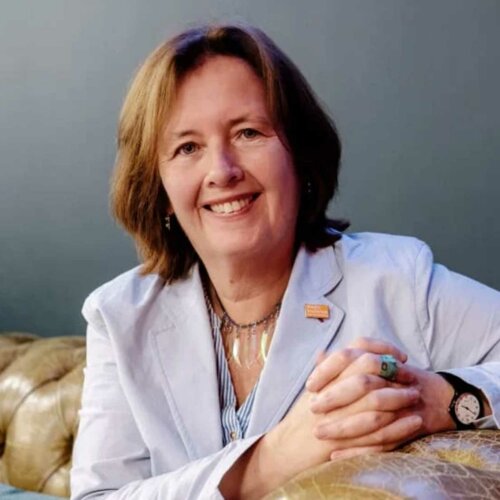
My family are from Fermanagh in Northern Ireland and I grew up in Dagenham. My mum often used to invite children into our house for beans on toast after school. I remember watching them eating with urgency. My mum used to say they didn’t have enough at home to keep them going. That stayed with me.
Carmel McConnell MBE, Our Founder
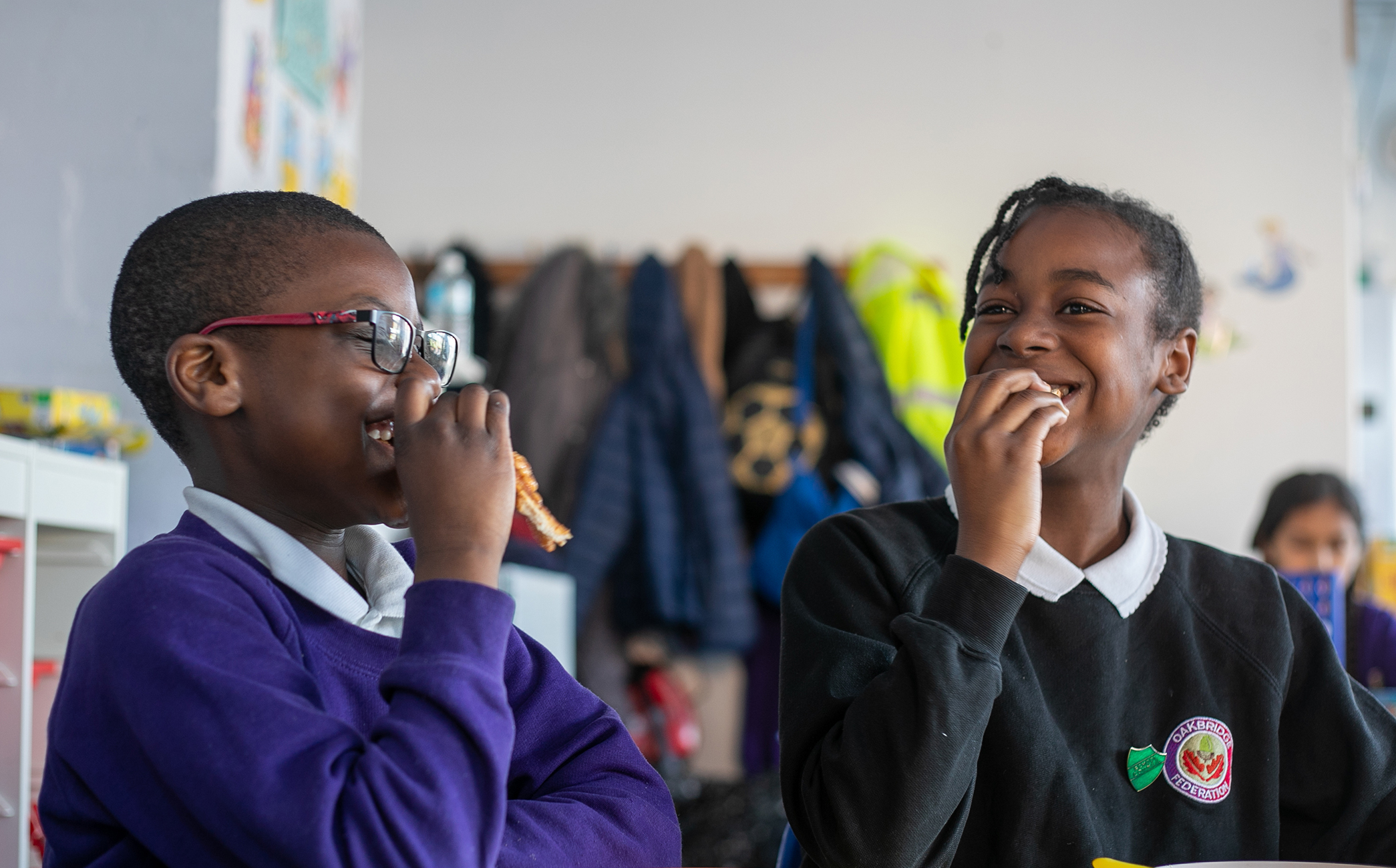
Share your magic story with us
As a parent, teacher or caregiver, have you experienced the positive effects of enjoying breakfast together on children and young people? Has Magic Breakfast made a difference in your community? We’d love to hear from you.
-
Lola, Pupil, aged 5
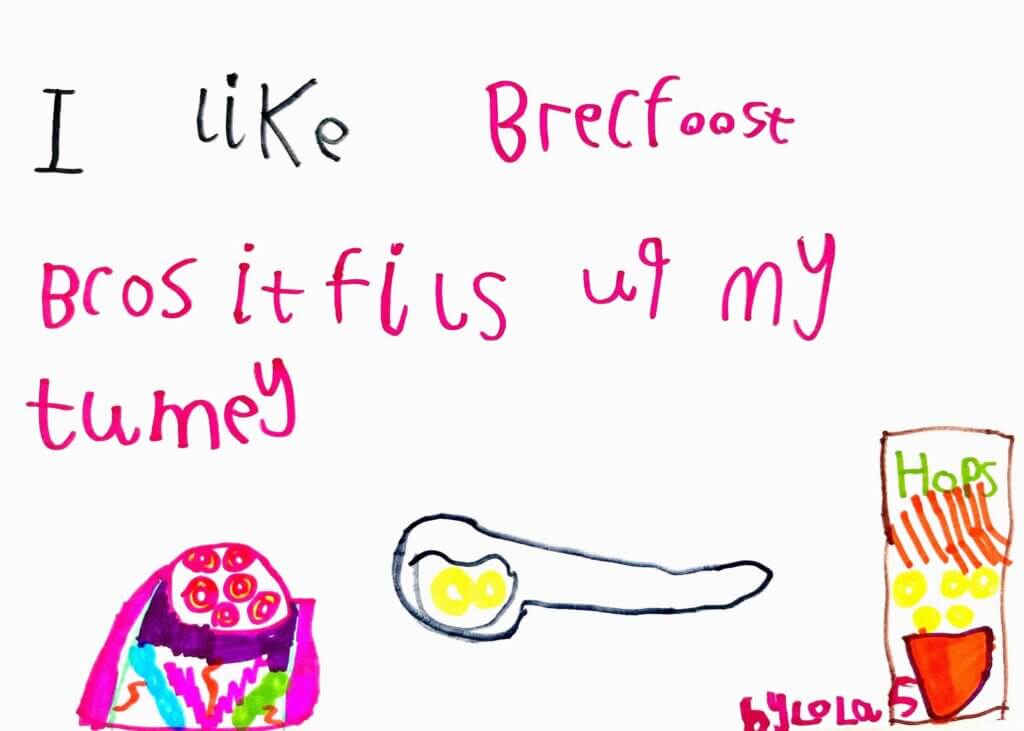
-
Magic Breakfast partner school
Children whose food is restricted at home are more comfortable about food and understand that food will be available each day.”
-
Magic Breakfast partner school
Breakfast provision allows staff to build positive relationships with pupils out of the classroom and this seeps into the classroom. From a staff point of view, this is a great support.”
-
Magic Breakfast partner school
The breakfast club is a welcome space for all the year groups and the children enjoy the interactive friendships with children of all ages.”
-
Magic Breakfast partner school
We have several parents now able to access work or training opportunities. Parents say they are more comfortable sometimes talking to staff in a more informal setting when they drop children off.”
-
Magic Breakfast partner school, England
“Alfie has severe autism and always comes to breakfast club. He arrives every morning and sits in the same seat and always has a bagel and a glass of milk out of a coloured plastic cup. Alfie used to sit quietly on his own watching other students for 6 months, until one day he moved seats and sat at the end of the table watching some other students play a game. The next week he went and joined in with the game which has now become part of his daily routine. It’s lovely to see him interacting with other students and it’s so nice to see how the students understand how he finds a change in routine hard, so they save him the same seat and they always sit at the same table to make sure he is settled.”
-
Engagement Partner
After eating breakfast, she went to the activity table and by the time the club ended was chatting and laughing, ready for class.”
